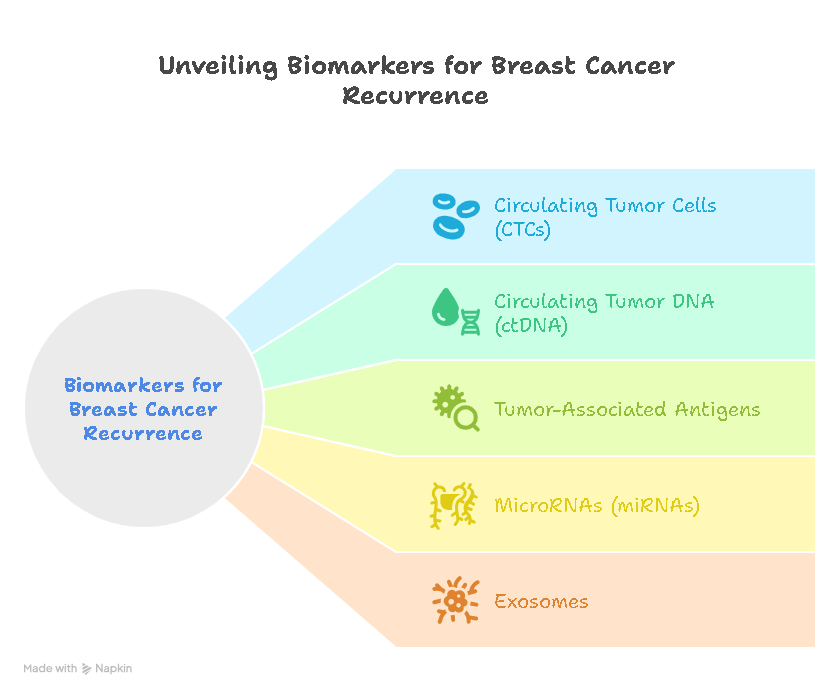Fallopian tube reconstruction surgery, often referred to as tubal surgery, is a critical procedure aimed at restoring the integrity and function of the fallopian tubes. These tubes play an essential role in female fertility, facilitating the passage of eggs from the ovaries to the uterus. When these tubes are blocked or damaged due to various factors such as infection, endometriosis, or previous surgeries, fertility can be compromised. This article delves into the indications, types, procedures, risks, and outcomes associated with fallopian tube reconstruction surgery.

Indications for Surgery
The primary reasons for considering fallopian tube reconstruction surgery include:
- Tubal Blockage: Often caused by pelvic inflammatory disease (PID), sexually transmitted infections, or previous surgeries.
- Ectopic Pregnancy: A previous ectopic pregnancy can lead to scarring or blockage of the tubes.
- Endometriosis: This condition can result in adhesions and blockages in the reproductive tract.
- Tubal Ligation: Women who have undergone sterilization but wish to conceive may opt for tubal reversal.
- Congenital Anomalies: Some women may be born with structural abnormalities in their reproductive system.
Types of Tubal Surgery
There are several techniques employed in fallopian tube reconstruction, each suited to specific conditions:
- Salpingostomy: An incision is made in the fallopian tube to create a new opening, often used in cases of ectopic pregnancy.
- Fimbrioplasty: A procedure to repair or reconstruct the fimbriae (the end of the fallopian tube), which can improve the ability to capture the egg.
- Salpingectomy: In cases where one tube is severely damaged, the affected tube may be removed, allowing the remaining tube to function normally.
- Tubal Reanastomosis: This is typically performed after tubal ligation, where the previously cut or blocked sections of the tube are reconnected.
The Surgical Procedure
Fallopian tube reconstruction surgery is generally performed under general anesthesia. Depending on the complexity, the surgery can be done through:
- Laparoscopy: A minimally invasive technique that uses small incisions and a camera to guide the surgery. This method typically results in shorter recovery times and less postoperative pain.
- Laparotomy: A more invasive approach involving a larger abdominal incision, usually reserved for more complicated cases.
The surgeon will carefully assess the condition of the fallopian tubes and use the appropriate technique to repair or reconstruct them.
Risks and Complications
As with any surgical procedure, fallopian tube reconstruction carries potential risks, including:
- Infection: As with any surgical procedure, there is a risk of infection.
- Adhesion Formation: Scar tissue may develop, potentially leading to further complications.
- Tubal Recanalization Failure: There is a possibility that the tubes may not reopen successfully, affecting fertility.
- Ectopic Pregnancy: There is a heightened risk of ectopic pregnancy following tubal surgery.
Postoperative Care and Recovery
Recovery times can vary, but many patients can return to normal activities within a week. Follow-up appointments are essential to monitor healing and assess the success of the procedure. Patients are often advised to wait a few months before attempting to conceive, allowing the body adequate time to heal.
Success Rates
The success rates for fallopian tube reconstruction surgery depend on various factors, including the woman’s age, the reason for the blockage or damage, and the specific procedure used. Generally, studies suggest that success rates can range from 50% to over 80%, with higher rates observed in women who undergo surgery for tubal ligation reversal compared to those with other causes.
Conclusion
Fallopian tube reconstruction surgery offers hope to many women struggling with infertility due to tubal issues. While it is not without risks, advances in surgical techniques and improved understanding of reproductive health have made this procedure a viable option for many. For women considering this surgery, it is essential to consult with a fertility specialist to discuss individual circumstances, potential outcomes, and the best course of action for achieving pregnancy. With the right approach and care, many women have successfully gone on to conceive and start families after undergoing this surgery.Emotional and Psychological Considerations
Navigating the path to fertility can be emotionally challenging, particularly for women facing surgery like fallopian tube reconstruction. The desire to conceive can come with feelings of hope and anxiety, and it’s crucial to acknowledge the emotional impact of infertility and surgical procedures. Women may experience a range of emotions, including:
- Hopefulness: Many women feel optimistic about the potential for conception following surgery, especially if previous attempts at pregnancy have been unsuccessful.
- Anxiety: Concerns about the surgery itself, potential complications, and the effectiveness of the procedure can lead to heightened anxiety levels.
- Fear of Failure: There may be a significant fear surrounding the possibility that the surgery might not lead to successful pregnancy, adding to emotional strain.
Support from family, friends, or mental health professionals can be invaluable during this time. Counseling or support groups specifically for women experiencing infertility can provide a safe space to express feelings and share experiences.
Preparing for Surgery
Preparation for fallopian tube reconstruction surgery involves several steps:
- Preoperative Assessment: A thorough evaluation by a fertility specialist will be conducted to assess overall health, medical history, and the specific condition of the fallopian tubes.
- Diagnostic Tests: Tests such as hysterosalpingography (HSG) or laparoscopy may be used to determine the exact nature and location of any blockages or abnormalities.
- Lifestyle Modifications: Patients may be advised to maintain a healthy diet, stop smoking, and limit alcohol intake in the weeks leading up to surgery to optimize health and recovery.
Aftercare and Long-Term Considerations
Post-surgery, women will typically receive specific instructions to ensure a smooth recovery:
- Monitoring Symptoms: Patients should be vigilant about any signs of complications, such as severe pain, fever, or unusual discharge, and report these to their healthcare provider.
- Gradual Return to Activities: While many women can resume normal activities within a week, physical exertion should be avoided until cleared by the surgeon.
- Follow-Up Care: Regular follow-up appointments are essential to assess healing and discuss next steps in the fertility journey.
In the long term, women who have undergone fallopian tube reconstruction surgery may consider the following:
- Fertility Treatments: If natural conception does not occur, options such as in vitro fertilization (IVF) may be explored, especially if there are additional fertility issues.
- Regular Health Check-Ups: Maintaining overall reproductive health through regular gynecological check-ups can help monitor any changes or complications.
Conclusion
Fallopian tube reconstruction surgery represents a significant advancement in the field of reproductive medicine, offering hope to many women facing infertility due to tubal issues. By restoring the function of the fallopian tubes, this procedure can open new pathways to conception, allowing women to pursue their dreams of motherhood.
However, it’s essential to approach the journey with realistic expectations and a comprehensive understanding of the process. Consulting with qualified healthcare providers, considering emotional support, and being aware of the possible outcomes are crucial steps in navigating the complexities of fertility and reproductive health.
With ongoing advancements in medical technology and techniques, the future of fertility treatments continues to evolve, providing more options and hope for those seeking to expand their families. Whether through surgical intervention or assisted reproductive technologies, many women find the path to parenthood achievable, despite the challenges they may face.
Lifestyle Factors and Their Impact on Fertility
In addition to surgical options, certain lifestyle modifications can enhance overall fertility and complement the outcomes of fallopian tube reconstruction surgery. Here are some key factors to consider:
- Nutrition: A balanced diet rich in vitamins and minerals supports reproductive health. Foods high in antioxidants, such as fruits and vegetables, can help reduce oxidative stress, which may affect fertility. Additionally, maintaining a healthy weight is crucial, as both underweight and overweight conditions can impact hormonal balance and ovulation.
- Exercise: Regular physical activity promotes overall health and can aid in maintaining a healthy weight. However, it’s essential to strike a balance; excessive exercise may negatively impact menstrual cycles and fertility. Moderate, consistent exercise is typically recommended.
- Stress Management: High levels of stress can interfere with hormone production and ovulation. Techniques such as yoga, meditation, and deep-breathing exercises can help manage stress and improve mental well-being. Engaging in hobbies and spending time with loved ones can also provide emotional relief.
- Avoiding Harmful Substances: Limiting or eliminating alcohol, nicotine, and recreational drugs is essential for improving fertility. These substances can adversely affect hormonal balance and reproductive health.
- Regular Check-Ups: Routine visits to healthcare providers for gynecological examinations and screenings are crucial for early detection of any potential issues. Maintaining good reproductive health can play a significant role in fertility.
Alternative and Complementary Therapies
Some women may also explore alternative therapies to support their fertility journey. While these should not replace conventional medical treatments, they can be valuable adjuncts:
- Acupuncture: Some studies suggest that acupuncture may help improve blood flow to the reproductive organs, reduce stress, and enhance the effectiveness of fertility treatments.
- Herbal Supplements: Certain herbs are believed to support reproductive health, such as vitex (chaste tree) and maca root. However, it’s essential to consult with a healthcare provider before starting any supplements to ensure safety and compatibility with other treatments.
- Mind-Body Techniques: Practices like mindfulness and visualization can foster a positive mindset, which may be beneficial during the emotional rollercoaster of fertility treatments.
The Importance of Open Communication with Healthcare Providers

Establishing a strong partnership with healthcare providers is essential for a successful fertility journey. Here are some tips for effective communication:
- Be Honest About Concerns: Sharing fears, uncertainties, and questions openly with healthcare providers can lead to better care and support.
- Ask Questions: Don’t hesitate to ask about anything that is unclear. Understanding every aspect of the treatment plan can alleviate anxiety and build confidence in the process.
- Discuss All Options: Ensure that you discuss all available options, including both surgical and non-surgical methods for addressing fertility issues. Exploring a range of possibilities can lead to the best personalized approach.
- Follow Up on Progress: Regular check-ins with healthcare providers help monitor recovery and progress, ensuring that any concerns are addressed promptly.
Moving Forward After Surgery
For many women, the period following fallopian tube reconstruction surgery is a time of hope and anticipation. However, it’s also essential to manage expectations:
- Patience in the Journey: Conception may not happen immediately after surgery. It’s essential to remain patient and allow the body to heal while maintaining a proactive approach to fertility.
- Continuing Education: Staying informed about reproductive health and ongoing research can empower women to make informed decisions about their fertility journey.
- Revisiting Goals: If conception does not occur after a reasonable period, it may be worthwhile to reevaluate fertility goals with a specialist. Exploring additional options like IVF or other assisted reproductive technologies can provide new pathways to parenthood.
Conclusion
Fallopian tube reconstruction surgery offers many women a renewed chance at motherhood. While the journey can be challenging, it is filled with opportunities for growth, support, and understanding. By addressing lifestyle factors, engaging with support networks, and maintaining open communication with healthcare providers, women can navigate the complexities of infertility with resilience and hope.
As advancements in reproductive medicine continue to evolve, women have more options than ever before. Whether through surgical intervention or alternative therapies, the possibility of achieving a successful pregnancy remains a realistic and attainable goal. With the right support and resources, many women can turn their dreams of parenthood into reality.
Lifestyle Factors and Their Impact on Fertility
In addition to surgical options, certain lifestyle modifications can enhance overall fertility and complement the outcomes of fallopian tube reconstruction surgery. Here are some key factors to consider:
- Nutrition: A balanced diet rich in vitamins and minerals supports reproductive health. Foods high in antioxidants, such as fruits and vegetables, can help reduce oxidative stress, which may affect fertility. Additionally, maintaining a healthy weight is crucial, as both underweight and overweight conditions can impact hormonal balance and ovulation.
- Exercise: Regular physical activity promotes overall health and can aid in maintaining a healthy weight. However, it’s essential to strike a balance; excessive exercise may negatively impact menstrual cycles and fertility. Moderate, consistent exercise is typically recommended.
- Stress Management: High levels of stress can interfere with hormone production and ovulation. Techniques such as yoga, meditation, and deep-breathing exercises can help manage stress and improve mental well-being. Engaging in hobbies and spending time with loved ones can also provide emotional relief.
- Avoiding Harmful Substances: Limiting or eliminating alcohol, nicotine, and recreational drugs is essential for improving fertility. These substances can adversely affect hormonal balance and reproductive health.
- Regular Check-Ups: Routine visits to healthcare providers for gynecological examinations and screenings are crucial for early detection of any potential issues. Maintaining good reproductive health can play a significant role in fertility.
Alternative and Complementary Therapies
Some women may also explore alternative therapies to support their fertility journey. While these should not replace conventional medical treatments, they can be valuable adjuncts:
- Acupuncture: Some studies suggest that acupuncture may help improve blood flow to the reproductive organs, reduce stress, and enhance the effectiveness of fertility treatments.
- Herbal Supplements: Certain herbs are believed to support reproductive health, such as vitex (chaste tree) and maca root. However, it’s essential to consult with a healthcare provider before starting any supplements to ensure safety and compatibility with other treatments.
- Mind-Body Techniques: Practices like mindfulness and visualization can foster a positive mindset, which may be beneficial during the emotional rollercoaster of fertility treatments.
The Importance of Open Communication with Healthcare Providers
Establishing a strong partnership with healthcare providers is essential for a successful fertility journey. Here are some tips for effective communication:
- Be Honest About Concerns: Sharing fears, uncertainties, and questions openly with healthcare providers can lead to better care and support.
- Ask Questions: Don’t hesitate to ask about anything that is unclear. Understanding every aspect of the treatment plan can alleviate anxiety and build confidence in the process.
- Discuss All Options: Ensure that you discuss all available options, including both surgical and non-surgical methods for addressing fertility issues. Exploring a range of possibilities can lead to the best personalized approach.
- Follow Up on Progress: Regular check-ins with healthcare providers help monitor recovery and progress, ensuring that any concerns are addressed promptly.
Moving Forward After Surgery
For many women, the period following fallopian tube reconstruction surgery is a time of hope and anticipation. However, it’s also essential to manage expectations:
- Patience in the Journey: Conception may not happen immediately after surgery. It’s essential to remain patient and allow the body to heal while maintaining a proactive approach to fertility.
- Continuing Education: Staying informed about reproductive health and ongoing research can empower women to make informed decisions about their fertility journey.
- Revisiting Goals: If conception does not occur after a reasonable period, it may be worthwhile to reevaluate fertility goals with a specialist. Exploring additional options like IVF or other assisted reproductive technologies can provide new pathways to parenthood.
Conclusion
Fallopian tube reconstruction surgery offers many women a renewed chance at motherhood. While the journey can be challenging, it is filled with opportunities for growth, support, and understanding. By addressing lifestyle factors, engaging with support networks, and maintaining open communication with healthcare providers, women can navigate the complexities of infertility with resilience and hope.
As advancements in reproductive medicine continue to evolve, women have more options than ever before. Whether through surgical intervention or alternative therapies, the possibility of achieving a successful pregnancy remains a realistic and attainable goal. With the right support and resources, many women can turn their dreams of parenthood into reality.
The Role of Advocacy and Awareness
As awareness of infertility issues grows, so does the importance of advocacy in the field of reproductive health. Engaging in advocacy can help bring attention to the challenges faced by those experiencing infertility and drive changes in healthcare policies. Here are some ways individuals can get involved:
- Sharing Personal Stories: Personal narratives can be powerful tools for raising awareness. Sharing experiences—whether through social media, blogs, or community events—can help destigmatize infertility and encourage others to seek help.
- Joining Advocacy Organizations: Many organizations focus on reproductive health and infertility awareness, such as Resolve: The National Infertility Association. Joining these groups can provide resources, support, and opportunities to participate in advocacy efforts.
- Engaging in Fundraising: Fundraising for infertility research or supporting local fertility clinics can help improve access to treatments and support services for those in need.
- Lobbying for Policy Changes: Advocacy can also extend to lobbying for legislative changes, such as insurance coverage for fertility treatments. Educating lawmakers about the importance of reproductive health access can lead to meaningful reforms.
The Impact of Mental Health
Mental health plays a crucial role in the fertility journey, and addressing psychological well-being is essential for overall success. Here are some considerations:
- Recognizing the Emotional Toll: Infertility can lead to feelings of grief, isolation, and depression. Acknowledging these feelings is the first step toward finding help.
- Therapeutic Support: Many women find therapy beneficial in coping with the emotional aspects of infertility. Cognitive-behavioral therapy (CBT) and other therapeutic modalities can provide coping strategies and emotional relief.
- Mindfulness and Relaxation Techniques: Incorporating mindfulness practices, such as meditation and yoga, can help reduce anxiety and promote emotional resilience. These techniques encourage a focus on the present and can alleviate some stress associated with the journey.
- Supportive Relationships: Maintaining open communication with partners and loved ones about feelings and experiences can foster a supportive environment. It’s essential to nurture these relationships during what can be a challenging time.
Preparing for Potential Outcomes
Understanding and preparing for various outcomes following surgery is important for managing expectations and emotional well-being:
- Accepting Different Paths: Not all women will conceive naturally following surgery. It’s essential to remain open to various paths to parenthood, including adoption or using donor eggs or sperm.
- Setting Realistic Timelines: After surgery, it may take several months for ovulation and menstrual cycles to normalize. Patience is key, and it’s essential to have realistic expectations about the timeline for conception.
- Exploring Additional Fertility Treatments: If conception does not occur within a reasonable timeframe, discussing options like IVF or other assisted reproductive technologies with a specialist can provide new avenues for achieving pregnancy.
Celebrating Milestones and Achievements
Throughout the fertility journey, it’s important to celebrate small milestones and achievements, whether it’s completing a treatment cycle, achieving a successful surgery, or simply maintaining a positive mindset. Recognizing these moments can provide motivation and encouragement to continue pursuing goals.
Conclusion
The path of fallopian tube reconstruction surgery and the journey to motherhood can be complex, filled with both challenges and opportunities. By engaging with support networks, prioritizing mental health, advocating for awareness, and preparing for various outcomes, women can navigate this journey with resilience and hope.
As advancements in reproductive medicine continue to unfold, the potential for achieving successful pregnancies remains promising. Whether through surgical intervention, lifestyle modifications, or alternative therapies, many women can find pathways to parenthood that align with their unique circumstances.
Ultimately, the journey may be fraught with uncertainties, but with determination, support, and knowledge, the dream of becoming a parent can become a reality for many women. The experiences gained along the way can foster personal growth and create a strong foundation for future family life.
Building a Supportive Community
As the journey through fertility challenges unfolds, the importance of building a supportive community cannot be overstated. Here are some ways to create and nurture these connections:
- Forming Friendships with Shared Experiences: Connecting with others who have gone through similar challenges can foster deep, understanding relationships. Sharing stories, coping strategies, and emotional support can be incredibly comforting.
- Participating in Workshops and Events: Many fertility clinics and organizations host workshops, seminars, and events focused on education and support. Attending these can provide valuable information and connect individuals with others who are on the same journey.
- Utilizing Social Media for Connection: Online platforms can serve as excellent tools for connecting with communities focused on fertility issues. Joining groups and forums can help individuals find camaraderie and share experiences.
- Organizing Local Meetups: For those who prefer face-to-face interactions, organizing local meetups or support groups can create a safe space for discussion, encouragement, and friendship.
Understanding Your Body
An essential aspect of navigating fertility is gaining a deeper understanding of one’s own body. Here are some strategies:
- Tracking Menstrual Cycles: Keeping track of menstrual cycles, ovulation patterns, and other bodily changes can provide insight into personal fertility and help in planning for conception.
- Learning About Reproductive Health: Educating oneself about reproductive health, anatomy, and how the menstrual cycle works can empower women to make informed decisions regarding their fertility.
- Using Technology: Many apps are available to help track ovulation, menstrual cycles, and fertility signs. These can provide valuable data to discuss with healthcare providers.
Navigating Relationships During Infertility
Infertility can put significant strain on relationships, particularly with partners, family, and friends. Here are some ways to navigate these dynamics:
- Open Dialogue with Partners: Communication is key. Partners should discuss their feelings, expectations, and coping strategies to foster understanding and teamwork.
- Setting Boundaries: It may be necessary to establish boundaries with friends and family regarding conversations about pregnancy and fertility. Clearly communicating comfort levels can help protect emotional well-being.
- Educating Loved Ones: Many friends and family members may not fully understand what infertility entails. Sharing information about the emotional and physical challenges can encourage empathy and support.
- Seeking Couple’s Counseling: For partners struggling to cope, couple’s counseling can provide a space to address issues together, enhancing communication and emotional connection.
Final Thoughts on the Fertility Journey
The journey through fallopian tube reconstruction surgery and the broader experience of infertility is undoubtedly challenging, but it can also be a period of profound personal growth. Here are some closing thoughts:
- Resilience in the Face of Adversity: Facing infertility often requires immense strength and resilience. Many women discover inner strengths and coping mechanisms they never knew they had.
- Fostering Hope: Maintaining hope is crucial throughout the process. Whether through successful surgery or alternative paths to parenthood, hope can be a powerful motivator.
- Embracing the Journey: Each person’s path to parenthood is unique. Embracing the journey, with its ups and downs, can lead to valuable lessons and deeper connections.
- Celebrating Outcomes: Regardless of the final outcome—whether it’s pregnancy, adoption, or another path—celebrating personal achievements and milestones along the way is essential. Each step taken is a testament to resilience and the desire for family.
Conclusion
Fallopian tube reconstruction surgery can offer renewed hope for women facing infertility. While the journey can be fraught with challenges, it also provides opportunities for growth, connection, and understanding.
By prioritizing emotional health, building supportive networks, and remaining open to various outcomes, women can navigate this complex journey with strength and determination. Advances in reproductive medicine continue to create possibilities for many, affirming that the dream of parenthood is attainable.
As women embark on this path, they are reminded that they are not alone. With the right support, education, and resources, countless women have turned their hopes into reality. Ultimately, the journey to parenthood, though unique for each individual, is a testament to resilience, love, and the enduring human spirit.












Leave a Reply